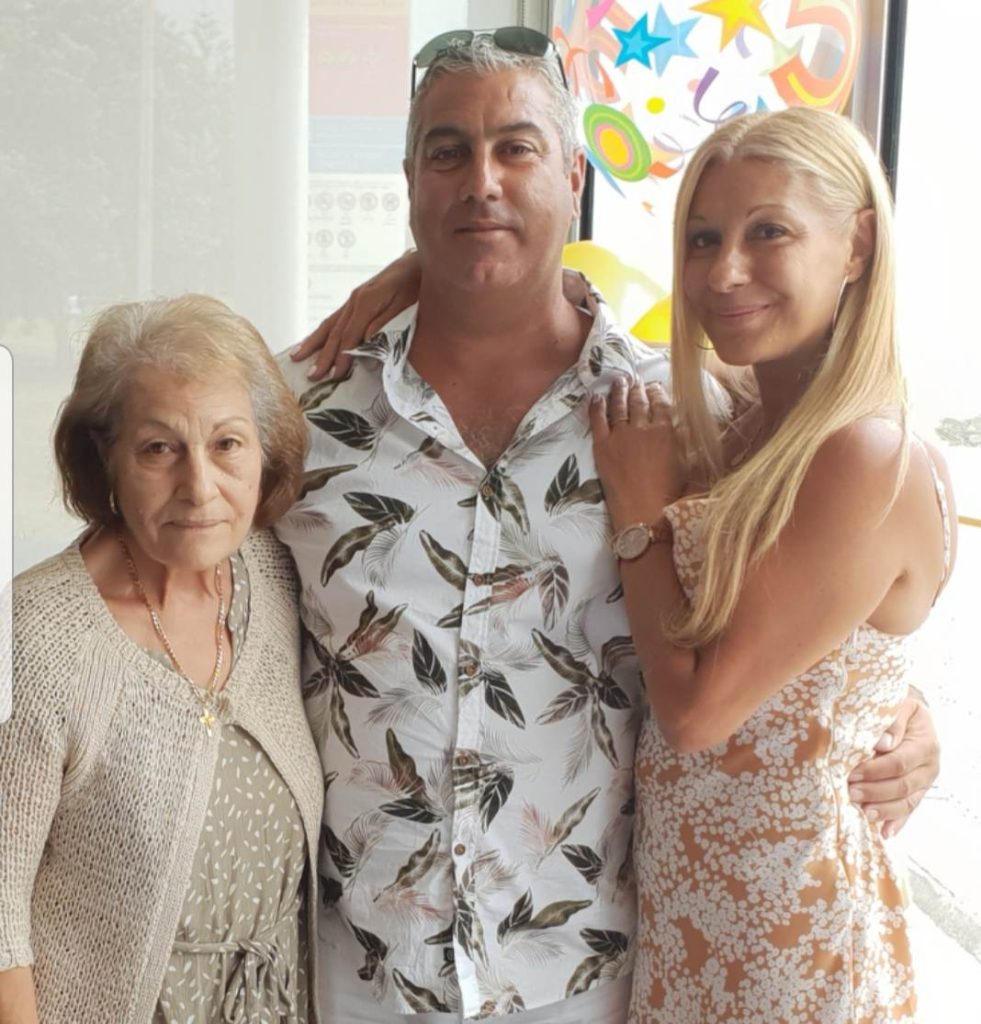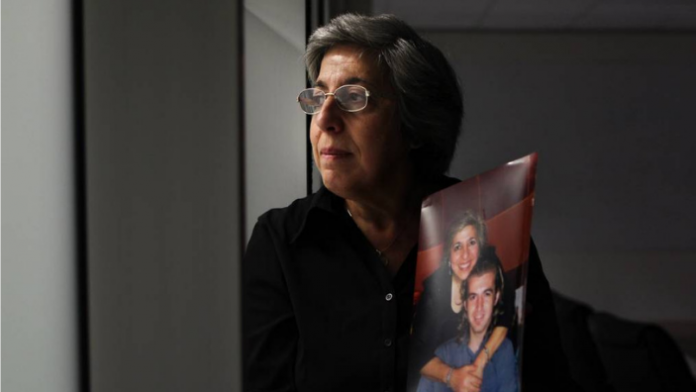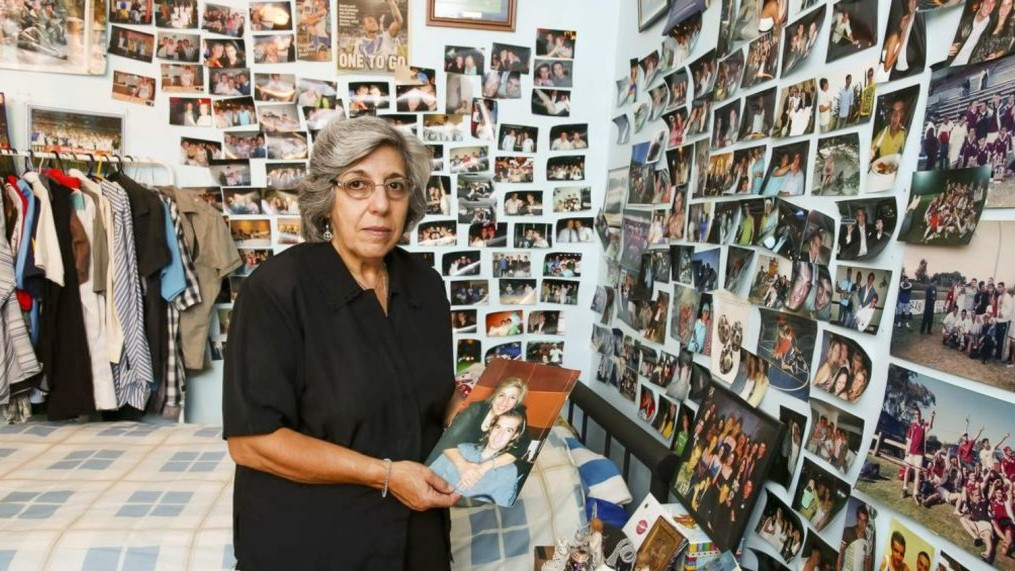Glenn Anthony and his wife Maria Anthony, President of Pontoxeniteas NSW, held a fundraiser in Sydney last year in honour of their brother Terry ‘Tezza’ Anthony, who died by suicide six years ago.
The fundraiser was held at The Grand Roxy in Brighton-Le-Sands from 6.30pm and raised money for the Black Dog Institute towards Mental Health Awareness and Suicide Prevention.
The night focused on personal stories from the family and other guest speakers, including Katrina Tsaftaropoulos.
The Greek Herald spoke with Glenn and Katrina to hear all about their personal connection to losing a family member through suicide.

Glenn Anthony:
What is your personal connection to mental health issues and suicide?
I lost my brother Terry to suicide in 2017. He was suffering from mental health issues and depression for many years. We as a family had lived with this and tried to get help for Terry, but this was very difficult and challenging for my parents, sister and myself. After Terry’s passing, it was extremely difficult to process and all our lives were changed.
Personally, my views on life were altered and nothing seemed important anymore. I shut myself off to everyone and everything, and slipped into a terrible depression. I had many questions but no answers. I spent three years with my bereavement councillor to help me focus and see clearly again.
Do you think suicide and mental health is a taboo topic in the Greek community? Why / Why not?
I do believe it is a taboo topic regardless of which community you come from. There is a stigma attached to suicide which generates thoughts within the community of weakness, blame, shame or even sin. The topic makes people uncomfortable and unsure of how to react.
Since my brother’s suicide, I have been able to understand a bit more about this disease and along with this better understanding, I have felt more comfortable discussing it. It is more frowned upon within the Greek community as it is looked at as a sin and having lack of faith.
Why do you think it’s important to be open and honest about the topic?
The more we are open and honest about the topic, the more people will feel comfortable talking about it. When we don’t talk about our problems or our depression or dark thoughts, then it builds up and it always feels much worse. The more we talk, the more we raise awareness, people are likely to seek help and advice. Let’s talk, let’s make a difference, let’s save lives together.
Do you have a message for anyone else going through the loss of a family member by suicide or supporting someone with their mental health?
As far as dealing with mental health issues, there are many different organisations to help with advice on recognising mental health, what to do, what to say and how to deal with this debilitating disease.
As far as a message for someone dealing with suicide, I would say to talk about your feelings, be open with your family and friends and don’t shut yourself off. The sooner you understand and accept what has happened, the sooner you can get peace of mind and ease your soul. It’s not easy. It’s a type of bereavement that never leaves you, so you have to find a way to best deal with it as it becomes part of your everyday life.

Katrina Tsaftaropoulos:
What is your personal connection to mental health issues and suicide?
I knew nothing about mental health. But when I lost my son, George, to suicide in 2012, I was unable to accept the tragedy. I developed post-traumatic stress and depression and became suicidal. In order to help myself, I had to obtain treatment and knowledge from mental health services. Now I use this knowledge to raise awareness and help others.
Do you think suicide and mental health is a taboo topic in the Greek community? Why / Why not?
I think it is a taboo subject in every community. Society in general, is very unaccepting and judgemental. The Greek community I found even more so. I found myself treated like a leper, people were cruel with their judgement and criticisms. Greeks don’t understand mental health is a chemical imbalance in the brain, a physical condition. They treat it as an aberration, a weakness, a lack of faith, and something to be avoided. They consider people be more religious and stronger.
Why do you think it’s important to be open and honest about the topic?
The more we talk openly about the subject, to bring it out of the shadows, the safer people will be. When they know others understand, and they can put up their hands and ask for help without judgement, they will seek help. This will save lives. My son did not seek help, fearing he would be labelled, and his teammates would think less of him.
Do you have a message for anyone else going through the loss of a family member by suicide or supporting someone with their mental health?
Losing a family member to suicide is devastating. My family unit imploded. We couldn’t deal with the grief, the mental health issues and beating the guilt of the ‘what ifs’ and ‘maybes.’ That ate us up alive.
My message is – you cannot fix them, you cannot take away their pain, but you can be there for them. Show compassion and understanding, be prepared to listen and support without judgement, have empathy, and give of yourself to share their grief.
Is there anything else you’d like to say?
There are many organisations dealing with mental health and there is a lot of assistance out there. There is a life lost to suicide every three hours, the toll is horrific. We need to raise awareness with our youth, teach them to recognise mental health, tell them where to get help, and how to build resistance. With knowledge and these tools, we can make a difference, we can save lives.
If this story has caused any distress The Beyond Blue Support Service is available via phone 24/7 on 1300 22 4636 or via beyondblue.org.au/get-support for online chat (3PM – 12AM AEST or email responses within 24 hours).
